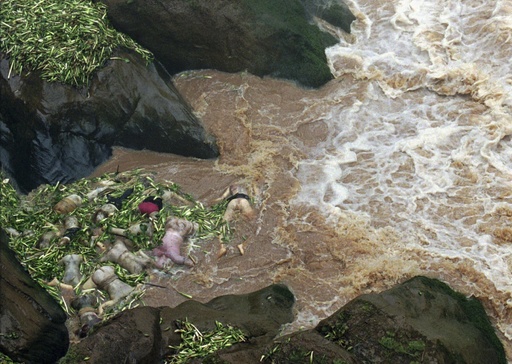Thirty years ago, Pascal Kanyemera made a pact with God while hiding from the horrors of the Rwandan genocide that claimed the lives of his father, two brothers, and countless others. Begging for survival, he promised to give 100 Rwandan francs for each week he lived. The 16-year-old prayed fervently until the killings ceased in July 1994, leaving him indebted to God for 400 francs. Pascal, now 46 and residing in Ottawa, recalls how his grandmother, uncles, and cousins were also victims of the brutal massacres instigated by extremist Hutus against Rwanda’s Tutsi minority.
The genocide was triggered on April 6, 1994, when the plane carrying President Juvénal Habyarimana, a Hutu leader, was shot down. This event led to the mass slaughter of Tutsis, blamed for the president’s death, by enraged Hutu militias with the support of the army and police. Pascal, who was hiding at a school when his family was killed on April 9, learned of their fate in late May upon reuniting with his mother and sisters at a refugee camp controlled by the French.
Survivors like Frida Umuhoza reveal harrowing experiences from the genocide, including witnessing her mother’s beheading and being coerced to choose her own method of execution by Hutu extremists. Despite the unimaginable atrocities they faced, many survivors, including Pascal, find solace and strength in their faith, seeking healing and peace through forgiveness and remembrance.
Tarcisse Ruhamyandekwe, who lost family members during the genocide and now resides in Ottawa, reflects on the deep-seated animosity between Hutus and Tutsis that fueled the violence. Discrimination against Tutsis started early, as recounted by Ruhamyandekwe’s childhood memories of his father being taken to jail. Systemic discrimination was ingrained in society, making it easy for Tutsis to be targeted and killed during the genocide based on their ethnicity.
Ruhamyandekwe underscores the importance of remembrance and education about the genocide to prevent such atrocities from happening again. He emphasizes the need to keep the memories of loved ones alive and teach future generations about their history. Despite the immense suffering and loss they endured, survivors like Ruhamyandekwe find resilience in their faith and the belief that God guided them through their darkest days. Sharing their stories and keeping the memory of the genocide alive serves as a testament to the strength and determination of the Rwandan people to never forget their past.
